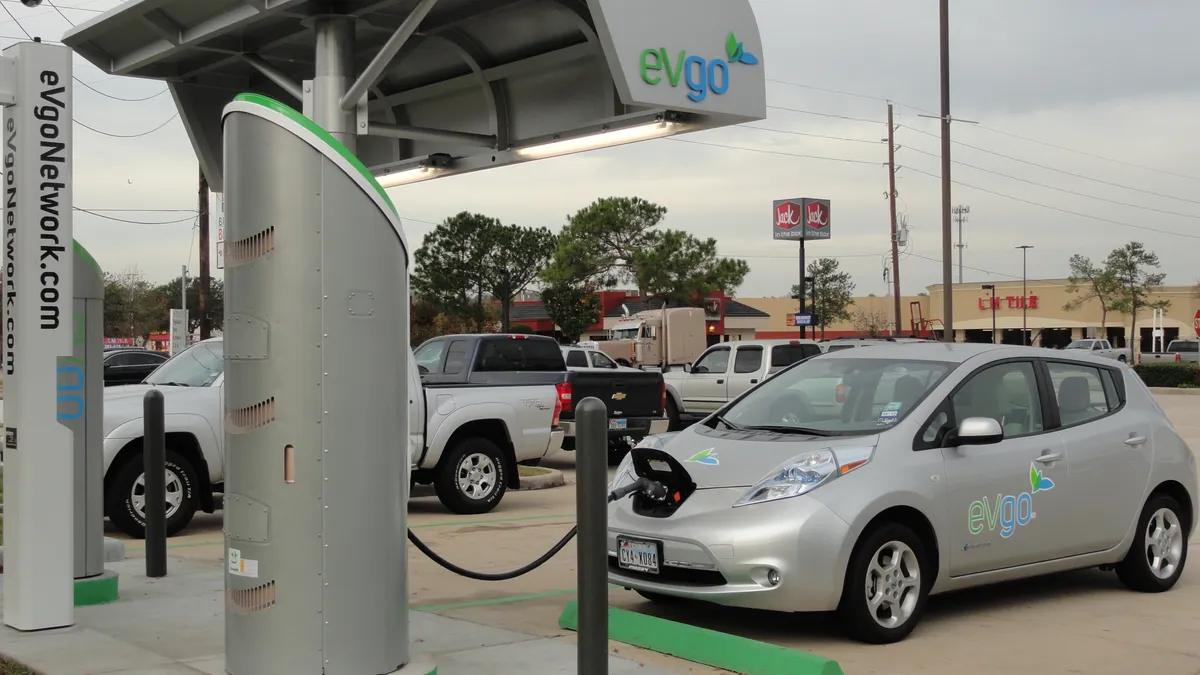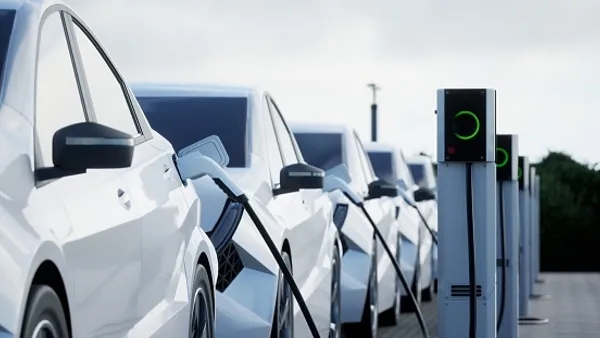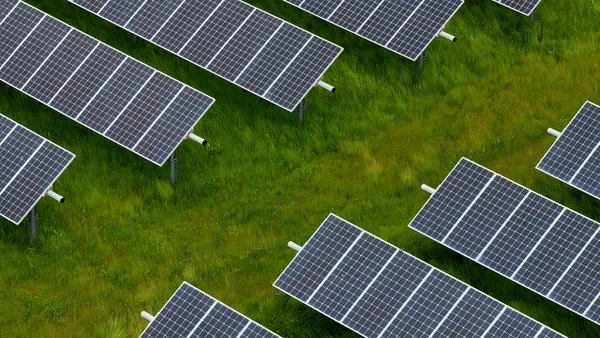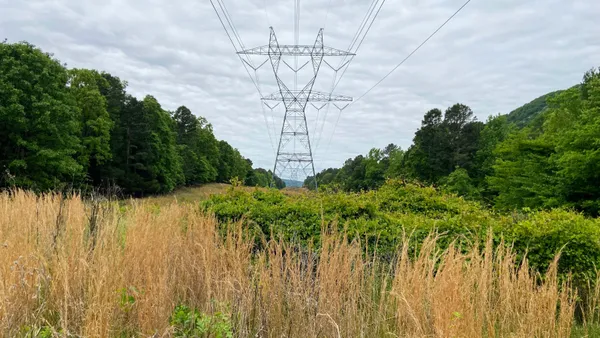Dive Brief:
- California regulators will consider approving new commercial electric vehicle charging rates for Pacific Gas & Electric, but concerns over customer subsidization and utilization rates could mean a substantially-reduced "subscription" fee the utility had proposed.
- In November, PG&E proposed a subscription-based charging rate that it compared to smartphone data plans as a way to eliminate demand charges that have impinged development of profitable public charging stations.
- But a California Public Utilities Commission (CPUC) proposed decision, filed Monday, would block PG&E from collecting any non-marginal distribution revenues from the rate, which regulators say would "substantially reduce" the proposed subscription charge.
Dive Insight:
Electric utilities are struggling to develop rates for EV charging stations, which tend to have low utilization but draw significant power when they are in use. In an effort to eliminate demand charges, which often keep stations from profiting, PG&E proposed a novel fee structure.
CPUC Chief Administrative Law Judge Anne Simon said approving the new rate, as modified by her proposed decision, was consistent with state laws requiring widespread transportation electrification "and moderation of demand charges faced by customers charging electric vehicles on existing commercial electricity rates."
PG&E and the commission's Public Advocates Office filed a joint stipulation that is the basis of the new rates, but Simon wrote "this decision makes certain changes to the joint stipulation's terms."
Specifically, the order states PG&E "must not collect any non-marginal distribution costs through the new rates. The effect of these changes is to substantially reduce the amount of the subscription charge included in the new rates."
The joint stipulation asked the commission to consider these rates:
According to the proposed order, the stipulation estimated removing revenue that is non-marginal from the proposed commercial EV rate reduced the charge from $21.17 per 10-kW block to $12.41/10 kW for those customers with peak demands of 100 kW or less.
Similar reductions to the subscription charge would be seen for customers with peak demands of more than 100 kW.
Simon's proposed decision concludes commercial electric vehicle charging rates "do not employ cross-subsidies" as there is no commission-authorized revenue requirement for the new commercial electric vehicle class to meet. But "any collections from the new class beyond marginal cost will be considered overcollections to be redistributed to other customer classes," the decision adds.
The proposed order also concludes reducing the subscription charge addresses concerns that it would "burden those customers that build and operate electric vehicle charging stations with low utilization rates."
PG&E officials said they could discuss the possible changes to the new rate more in depth once a final decision is issued, but added they were "pleased" the commission was helping the utility drive more rapid customer adoption.
"With the new rate, PG&E aims to make EV charging simpler and more affordable for fleet vehicles and charging stations at apartment buildings, workplaces and other public locations in Central and Northern California," the utility said in an email. "We are committed to working with the CPUC to address the changes in the proposed decision and implement this rate as soon as possible."
The proposed order also requires PG&E to file an application for a real-time commercial EV rate within the next 12 months. The utility in testimony told the commission that there “is not sufficient customer research, interest, or technology to support the inclusion of dynamic (i.e., hourly) rates at this time.”
The proposed decision would also eliminate an overage charge the utility would have collected for charging stations that exceeded their peak demand subscription.
The earliest the CPUC could vote on the proposed decision is at its Oct. 24 business meeting.















